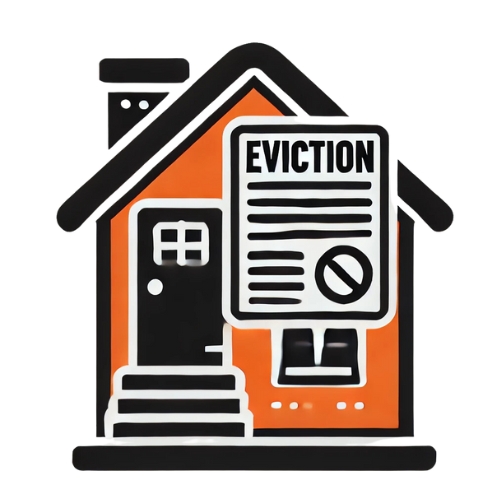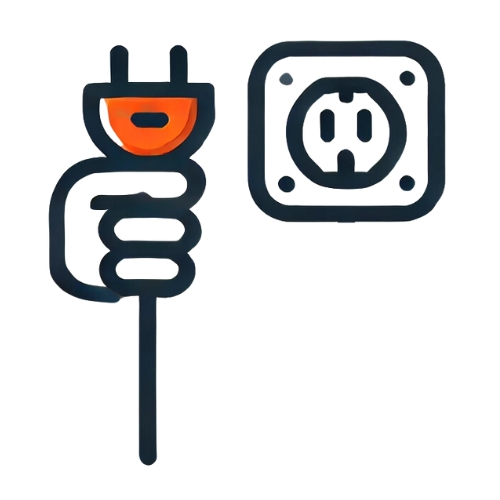
In South Africa, landlords are subject to specific legal constraints designed to protect tenants and ensure fair practices in the rental sector. The Rental Housing Act, along with various provincial regulations, establishes clear guidelines on landlord activities, including evictions, rent increases, deposit handling, and maintenance responsibilities. These regulations aim to create a fair balance between tenants and landlords, preventing misuse and promoting a more just rental market. Are you familiar with the actions landlords are prohibited from taking in South Africa?
Key Takeaways
- Eviction Limits: Landlords must obtain a court order to evict tenants and are prohibited from disconnecting utilities to force an eviction.
- Tenant Rights: Tenants are entitled to adequate housing and legal protection under South African law.
- Deposit Regulations: Laws mandate joint property inspections and transparent deposit management between landlords and tenants.
About Arcadia Finance
Streamline Your Loan Acquisition at Arcadia Finance: With no application fees and a selection of 19 reputable lenders who adhere to South Africa’s National Credit Regulator standards, you can find tailored and trustworthy financial solutions that cater to your needs.
What are Landlords?
Landlords are property owners who lease real estate to tenants. The properties under their management can vary from single rooms and apartments to whole houses and commercial spaces. Landlords are responsible for maintaining the property, ensuring it is safe and habitable, collecting rent, and complying with local housing laws and regulations. In return, tenants pay rent to live in or use the property according to the terms set out in their rental agreement or lease. Landlords are essential to the housing market, offering rental options for individuals who do not own their homes or need premises for their businesses.

Understanding Housing Laws in South Africa
Whether you’re a tenant or a landlord, understanding South African housing laws is essential.
In South Africa, navigating rental agreements requires careful consideration to avoid complications, regardless of whether you are a landlord or a tenant. The best outcomes arise from a transparent and communicative relationship between both parties, which helps ensure mutual benefits and prevents minor issues from escalating.
Misunderstandings often arise in rental relationships, particularly when there is a lack of openness and friendliness between the tenant and landlord. Frequently, both parties may not have the legal expertise or experience needed to manage rental agreements effectively, leading to potential issues if rental laws are not well understood.
In South Africa, both tenants and landlords are protected under common law and the specific provisions of the Rental Housing Act. Being aware of these rights from the beginning of a rental agreement can significantly reduce the risk of disputes over unmet obligations later on.
While renting might be a short-term solution, focusing on how to save money for a property can give you the financial freedom to own your space and be in control of your future.
What a Landlord Cannot Do in South Africa
In South Africa, tenants have specific legal rights, especially if they face difficulties with rent payments. It’s important for landlords to know that they cannot evict tenants without following a precise, court-supervised process, even in cases of non-payment. Here’s a detailed look at what landlords cannot do, highlighting the legal limitations and tenant protections:
Specific Prohibitions for Landlords in South Africa

Eviction Without a Court Order
South African law mandates that landlords must follow a formal eviction process, which includes obtaining a court order before removing a tenant. Self-conducted or arbitrary evictions are illegal. This formal process ensures fair treatment for all parties and provides tenants with an opportunity to defend themselves, thus safeguarding their rights.

Utility Disconnection
Landlords are prohibited from cutting off essential services such as water, electricity, or waste removal to force a tenant to leave. Such actions are deemed unlawful and violate South African housing laws. Ensuring continuous access to these essential services is crucial for tenants’ well-being and basic rights.

Tenant Lockout
Changing locks or using other methods to prevent a tenant from entering the property is illegal and seen as a way to bypass the formal eviction process. These actions can lead to significant legal penalties for landlords, including fines and potential claims for damages by the tenant.

Seizure of Tenant’s Belongings
Landlords do not have the right to seize a tenant’s personal possessions, regardless of any rent arrears or disputes. This protection prevents unlawful deprivation of property, which could negatively affect the tenant’s livelihood and personal well-being. It ensures that disputes over rent or property conditions do not result in personal losses for the tenant.

Harassment or Intimidation
Any form of harassment or intimidation directed at tenants is strictly prohibited. This includes physical violence, verbal threats, persistent and unwanted contact, or other coercive tactics. Such behaviour is legally actionable and can lead to severe repercussions for landlords, protecting tenants from undue stress and fear.
Legal Responsibilities of Landlords: Beyond these prohibitions, landlords have obligations to maintain the property in a habitable condition, carry out necessary repairs, and respect the tenant’s right to quiet enjoyment of the property. Failure to meet these responsibilities can result in legal challenges and compensation claims from tenants.
These regulations are intended to balance the rights and responsibilities of both parties in a rental agreement, ensuring that landlords operate within the law and that tenants have a safe and secure living environment. By following these legal requirements, landlords help support a fair and just housing system.

Tenants’ and Landlords’ Rights
In South Africa, the rights of tenants and landlords are primarily governed by the Rental Housing Act and various other legal provisions. Here’s a side-by-side comparison of key rights for both tenants and landlords:
| Tenants’ Rights | Landlords’ Rights |
|---|---|
| Right to privacy: Tenants have the right to enjoy their rented property without unwarranted disturbance. Landlords must give reasonable notice before entering the property, typically for inspections or repairs. | Right to rental payment: Landlords have the right to receive timely and agreed-upon rental payments from their tenants. Failure to pay rent can lead to legal actions, including eviction. |
| Right to a habitable dwelling: The property must be in a condition that is safe and fit for living. This includes necessary repairs and maintenance to keep the property livable, which the landlord must undertake. | Right to evict for breach of contract: Landlords can evict tenants who violate terms of the lease, such as damaging property or engaging in illegal activities, following proper legal procedures. |
| Right to deposit refund: Upon the end of the lease, tenants have the right to get their deposit back, typically within 7-21 days, provided there are no damages beyond normal wear and tear. | Right to inspect the property: Landlords have the right to inspect the property at agreed-upon times to ensure it is well-maintained and to assess any damages at the end of the tenancy. |
| Right to receive a written lease: Tenants are entitled to have a comprehensive written agreement that outlines the terms and conditions of their tenancy, including rent amount, payment deadlines, and rules regarding the deposit. | Right to increase rent: Landlords have the right to increase the rent in accordance with the terms specified in the lease agreement, usually after giving one to two months’ notice. |
| Right to lodge complaints: Tenants can lodge complaints against landlords who fail to comply with the rental agreement or the law, such as failing to perform repairs or violating the tenant’s privacy. | Right to terminate the lease: Under certain conditions, such as the tenant’s consistent late payment or other significant lease violations, landlords can terminate the lease in accordance with legal procedures. |
When tenants fail to meet their financial obligations, understanding the legalities of non-payment and Section 129 letters is vital. This formal notice is part of the debt recovery process, offering tenants a final chance to rectify missed payments before legal action ensues.
Rental Housing Act: A Landlord’s Guide to What You Can and Cannot Do
The Rental Housing Act in South Africa provides essential guidelines for landlords to ensure a lawful and constructive relationship with tenants. By following the dos and don’ts outlined in the Act, landlords can create a transparent and fair rental experience for everyone involved.
Dos for Landlords
- Provide Written Receipts: Landlords must issue written receipts for all payments received, detailing the payment’s purpose, period, and property address.
- Invest Tenant Deposits: Deposits must be placed in an interest-bearing account at a bank, with the interest rate at least equivalent to that of a savings account.
- Conduct Initial and Final Inspections: Perform joint inspections with tenants at the start and end of the tenancy to identify any existing or new damages.
- Return Deposits Timely: Return the deposit and any accrued interest within 14 days after the lease ends and the property is vacated, provided the tenant has met all lease obligations.
- Maintain Records: Keep detailed records of any repairs or damages claimed against the deposit and provide receipts to tenants as proof of expenses.
- Adhere to Lease Provisions: Follow the lease terms strictly and ensure they comply with the standard provisions of the Act.
- Include Required Information in Lease Agreements: Ensure lease agreements contain comprehensive details, including the names and addresses of both parties, property description, rental amount, deposit details, lease period, and both parties’ obligations.
Don’ts for Landlords
- Avoid Inspection Delays: Failing to conduct timely inspections may imply acceptance of the property in its current state, complicating future damage claims.
- Don’t Deduct Costs Arbitrarily: All deductions from the deposit for repairs must be justified with tangible evidence.
- Avoid Overcharging: It’s prohibited to charge tenants for expenses not incurred during the lease period.
- Do Not Waive Standard Provisions: Standard provisions of the Act are designed to protect both parties and should not be waived.
- Respect House Rules: If house rules apply, provide a copy to the tenant as part of the lease documentation.
- Prompt Deposit Refunds: Ensure that deposit refunds, including any accrued interest, are returned within the specified timeframe to avoid disputes.
- Address Expiring Leases Appropriately: If a tenant stays beyond the lease term with the landlord’s consent, formalize this arrangement in a new lease agreement to avoid uncertainties.
By adhering to these guidelines, landlords in South Africa can maintain positive and lawful relationships with their tenants, ensuring a stable and respectful housing environment. The Rental Housing Act aims to balance the rights and responsibilities of both landlords and tenants, promoting fairness and transparency in all rental dealings. Understanding and complying with this Act is crucial for landlords to prevent legal issues and foster amicable tenant relationships.
If a tenant defaults on rent payments, landlords might consider the debt collection process for unpaid bills. This process ensures that landlords follow legal steps to recover owed amounts, providing a structured approach to handling arrears without violating tenant rights.
Conclusion
The legal framework that governs tenant rights and landlord obligations is designed to ensure fairness in rental agreements and protect all parties involved. Key legislation, such as the Rental Housing Act and the Prevention of Illegal Eviction from and Unlawful Occupation of Land Act, outlines strict guidelines for landlord conduct. These regulations cover crucial aspects like eviction procedures, rent adjustments, and property maintenance.
By focusing on legal compliance, transparency, and open communication, both landlords and tenants can help create a more equitable and just housing sector in South Africa.
Frequently Asked Questions
No, landlords in South Africa must obtain a court order to proceed with an eviction. This requirement ensures that evictions are conducted fairly and lawfully, in accordance with the Prevention of Illegal Eviction from and Unlawful Occupation of Land Act.
No, it is illegal for landlords to cut off essential services such as water, electricity, or refuse removal to force a tenant to leave. Such actions are deemed unlawful eviction methods and can lead to legal penalties.
Landlords are prohibited from seizing or tampering with a tenant’s personal belongings. This rule protects tenants from unlawful deprivation of property, which could significantly impact their well-being.
Harassment or intimidation by landlords is prohibited under South African law. Tenants experiencing such behaviour can report it and seek legal recourse to ensure their rights and safety are protected.
Landlords who do not follow the prescribed procedures for handling deposits and conducting joint inspections as specified in the Rental Housing Act may be required to return the full deposit. They must manage deposits transparently and provide clear documentation for any deductions.
Fast, uncomplicated, and trustworthy loan comparisons
At Arcadia Finance, you can compare loan offers from multiple lenders with no obligation and free of charge. Get a clear overview of your options and choose the best deal for you.
Fill out our form today to easily compare interest rates from 19 banks and find the right loan for you.


